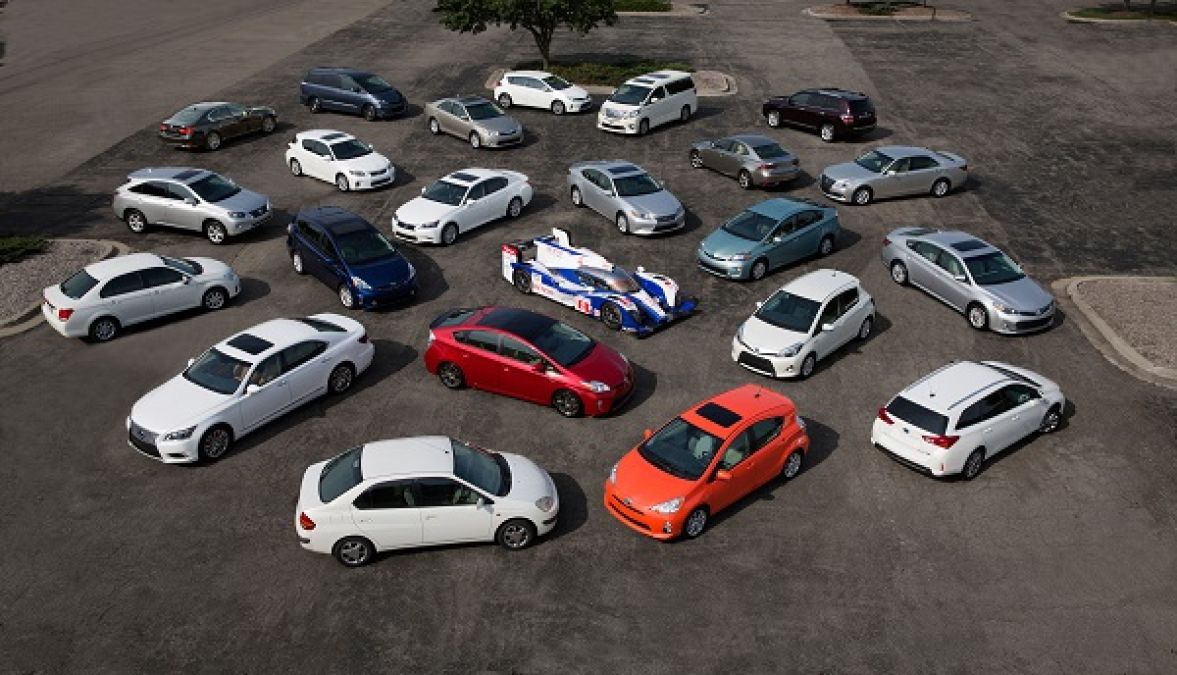Toyota makes more than half of the hybrid automobiles sold in the United States. Toyota is also the United States’ largest retail manufacturer. These facts are according to Bill Fay, Toyota Division Group Vice President and General Manager. This is partly because Toyota’s fleet sales are only about 5% of its total volume. Other manufacturers have a larger fleet business. Interestingly, much of Toyota’s fleet business is in hybrids, whereas other automaker’s fleet business is in such gas-guzzling vehicles as trucks and brute ‘ute SUVs. In Mass. the Toyota Prius is one of the typical models state employees use on official business.
In the US Toyota’s hybrid sales are accelerating. This year the Prius is slightly up from last year, but it is cars like the new Avalon, a runaway success for the company, that are putting up the big growth numbers. According to Toyota, fully a quarter of the Avalon’s volume is the hybrid model. Toyota now sells about as many hybrid Avalons as it did last year Avalons in total. Over on the Lexus side of the business most models are available as hybrids, and some like the CT 200h are only available as hybrid models. The coming compact crossover called LF-NX will only offer a hybrid and fuel efficient 2 liter gasoline engine upon its launch. It will very quickly become the most fuel efficient vehicle in the compact crossover segment. Models like this are the reason Toyota dominates most green car lists.
Toyota’s green leadership is not limited to the United States. Although Toyota has never been the strongest player in the European market, it has resisted the urge to play the pretend green game and move to diesel engines there. European countries tax gasoline much more than they do diesel. The original intentions were good. These countries had hoped to standardize on one fuel for trucks, buses, trains, cars and later crossovers. There was a time when diesels seemed to offer greater mileage in family cars, but that myth has been soundly debunked. Modern family cars with gasoline engines now offer lower CO2 emissions and have equal or better mileage to comparable diesel vehicles. Gasoline engines also have almost no fine particulate emissions, a pollutant that even modern diesels have not been able to eliminate. That 60% more gasoline can be refined from a barrel of crude oil than diesel also means limited oil reserves go farther. Lexus UK director, Richard Balshaw recently confirmed that the company will stick to gasoline hybrids to continue beating the diesels at the green car game. He says that in the coming year about 97% of the company’s vehicles will be hybrid gasoline cars.
Globally, Toyota’s and Lexus’ sales of green cars dominate the sales numbers. Over 5 million hybrids were sold by Toyota. According to the company this means that 34 million tons of CO2 were saved. By comparison, the total number of electric cars sold this year is less than a quarter million globally. Toyota’s hybrid fuel savings eclipses that saved by electric vehicles by a logarithmic factor. And Toyota has not ignored electric cars entirely. By partnering with Tesla early on, it was the first to co-produce a vehicle with the hot new upstart with the RAV 4 EV. Tesla now uses the Freemont facility in which Toyota once produced small, fuel efficient vehicles by the tens of thousands. Should the partnership blossom, Toyota would bring huge benefits to the relationship.
Toyota’s energy savings also start before any of their cars burn any fuel, or use any electricity. Since 2002 Toyota has cut the amount of energy needed to produce a vehicle by 22%. It also boasts 10 North American plants with zero landfill status. That is more plants than all but a few automakers even have in North America. Commenting on Toyota’s green manufacturing, Kevin Butt, regional environmental director, Toyota North America said “At Toyota, we strive to minimize environmental impacts throughout the vehicle life cycle. Our North American companies are working together to continually improve, innovate and serve as environmental leaders in our communities.”
The latest news from Toyota regarding green vehicles is that its 2014 Highlander Hybrid, which will be made in Indiana, will not only be sold in the US market, but also widely exported to such far-flung markets as Russia and Australia. Toyota now combines green vehicle leadership with US market in-sourcing. Something no other automaker can claim.
Photo courtesy of Toyota's media site shows some of the company's green car offerings.






Comments
EV sales hit a wall? What
Permalink
EV sales hit a wall? What wall, there is no mention in this article?
You're right! I left it out.
Permalink
In reply to EV sales hit a wall? What by Darko (not verified)
You're right! I left it out. Sorry about that. Here is what I should have included:
Volt and Leaf sales have plateaued. As has the Tesla Model S, though that will most likely change in 2014. The Ford EVs are barely selling, some reports are as low as 200 units per month, and most other EVs are only sold in select markets (Honda's Fit EV for example) and are still under 5,000 units per year. In 2013 the overall EV market did not expand appreciably. Particularly in the US.
One helpful link:
http://www.torquenews.com/106/chevrolet-volt-narrowly-beats-nissan-leaf-october-sales